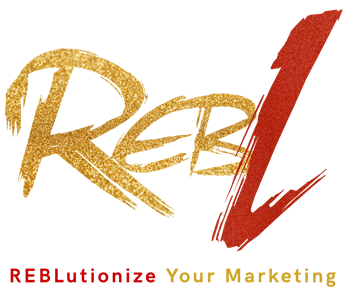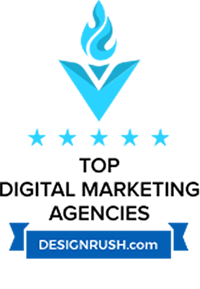AI content marketing is changing how agencies deliver services today. Integrating AI into content creation improves efficiency and offers better solutions for clients.
This guide covers:
- AI’s role in content marketing
- Benefits for agencies
- Essential tools to know
- Implementation steps
- Challenges you might encounter
- Upcoming trends likely to impact the industry.
Understanding AI in Content Marketing
AI in marketing uses technology to automate and enhance content strategies. It helps marketers focus on personalizing content that connects with their audiences. Analyzing data patterns and user behavior, AI customizes interactions, engaging customers more effectively.
The use of machine learning and natural language processing in marketing is straightforward. Machine learning lets systems learn from data and improve over time. Natural language processing helps computers understand human language, crafting content that appeals directly to your audience.
Together, these tools help you focus on getting the right message to the right people at the right time. Businesses can boost their marketing efforts with AI’s data-driven insights and ability to customize content. If you’re new to these technologies, our beginner’s guide on AI technologies offers more insights.
How AI Transforms Agency Offerings
AI technologies are redefining the offerings of marketing agencies. Agencies now deliver more customized and impactful solutions to their clients through enhanced efficiency and creativity.
AI for Personalized Marketing Campaigns
- AI helps create marketing campaigns that adjust messages to align with individual consumer preferences.
- This customization boosts engagement and conversion rates as content feels more relevant.
- AI analyzes consumer interactions and behaviors.
- This analysis crafts messages that resonate deeply, building stronger connections with audiences.
Automation in Content Distribution
AI significantly impacts content distribution through automation.
- Automates scheduling and distributing content across channels.
- Saves time and resources, ensuring content reaches target audiences without manual efforts.
- Reduces manual tasks, freeing agencies to focus on creative strategies.
- Provides consistent content delivery, maintaining engagement across platforms.
AI improves analytics for precise targeting and strategy. By combining AI insights with human creativity, agencies can craft campaigns that are effective and fresh.
Benefits of AI-Driven Content for Clients
Incorporating AI-driven content provides clear advantages for marketing efforts. Here’s how clients can benefit:
- Enhanced Personalization: AI algorithms analyze user data to create tailored content that aligns closely with individual consumer preferences. This makes messaging resonate more with each person.
- Quicker Service Delivery: AI automates content-related tasks, significantly shortening the timeline from strategy to execution. Clients can launch campaigns swiftly, adapting to market trends without long delays.
- Data-Driven Decision Making: AI evaluates vast amounts of data to gain insights into audience behaviors and preferences. Clients can adjust strategies in real-time based on detailed analytics, boosting satisfaction and ROI.
For more on how AI benefits translate into tangible results, check out our article on success benefits with AI in marketing.
Key AI Tools for Marketing Agencies
Enhancing Analytics with AI Technologies
Marketing agencies can significantly benefit from AI analytics. These tools offer insights into consumer behavior and content performance, refining strategies for better results. Key benefits include:
- Understanding audience interaction patterns.
- Identifying media that generate the most engagement.
- Optimizing timing to target specific demographics.
AI analytics predict future trends by evaluating historical data. This helps agencies plan proactively, ensuring campaigns are timely and impactful. The result? Higher conversion rates and satisfied customers.
Optimizing AI Tools for Agency Use
Integrating AI tools into existing workflows is essential for marketing agencies. Key steps for effective use include:
- Align AI capabilities with strategic goals.
- Identify where AI can enhance efficiency or provide insights.
- Automate repetitive tasks.
Training teams on AI tools ensures innovation and client-focused outcomes. For selecting suitable AI tools, refer to our practical guide on selecting AI tools. It provides step-by-step instructions for seamless technology integration.
Steps to Implement AI in Content Strategies
Using AI in your content strategies can position your agency for success. Follow this guide for a smooth transition:
1 Conduct an Initial Assessment:
- Analyze your current content strategy for areas where AI can have an impact.
- Choose AI technologies that match your objectives, such as machine learning for data insights or natural language processing for content creation.
2 Develop a Plan:
- Outline a roadmap for embedding AI solutions into existing workflows.
- Define objectives and key performance indicators (KPIs) to evaluate success and make necessary changes.
3 Integrate AI with Existing Systems:
- Make sure AI tools can integrate into your systems without major disruptions.
- Employ APIs and custom software that align with your agency’s technological needs.
4 Staff Training:
- Offer training to help your team effectively use and manage AI tools.
- Promote ongoing learning by providing workshops and upskilling opportunities.
5 Monitor Outcomes and Improve:
- Review performance metrics regularly to evaluate AI effectiveness.
- Adjust strategies based on data insights and client feedback.
Overcoming Challenges in AI Content Marketing
AI implementation comes with challenges. Here’s how to address them:
Resistance to Change:
- Cultivate innovation by emphasizing AI’s role in simplifying tasks and enhancing efficiency.
- Involve team members in implementation, encouraging feedback and addressing concerns.
Technical Hurdles:
- Work with IT specialists to manage technical challenges during integration.
- Select platforms offering technical support and troubleshooting resources.
Following these steps, your agency can successfully integrate AI and tackle any challenges that arise.
Future Trends in AI Content Marketing
AI content marketing continues to shape digital marketing strategies. Understanding current trends is key to staying competitive.
A developing trend is the refinement of personalization. AI enhances the ability to tailor content to individual consumer needs using increasingly sophisticated algorithms. This allows for targeted marketing where content feels personalized for consumers.
AI is also advancing in real-time analytics. The capability to analyze consumer data and market dynamics instantly helps marketers make informed decisions quickly. This dynamic response keeps campaigns relevant and effective as they adapt to shifting consumer behaviors.
AI’s role in multimedia experiences is expanding. With AI-driven content creation, there’s an increase in engaging and interactive media forms. Examples include video personalization where content adapts to viewer preferences and the medium being used.
As AI technologies progress, their role in marketing strategies shifts from supportive to integral. For marketers, staying informed on trends through analysis is essential. Learn more from this trend analysis article for insights into AI content marketing.
Balancing forward-looking strategies with your agency’s resources is crucial to navigating these changes effectively.
Conclusion
AI content marketing currently reshapes agency services by enhancing efficiency and improving client satisfaction. Incorporating AI into marketing strategies helps agencies operate more efficiently, offering streamlined services while building stronger client relationships.
Key Takeaways
- Efficiency and Automation: AI improves operational efficiency, automating tasks and freeing up time for strategy and creativity.
- Personalization at Scale: Agencies can use AI to deliver content experiences tailored to individuals, boosting engagement.
- Enhanced Insights: AI analytics offer deep consumer behavior insights, supporting data-driven decisions and strategy refinement.
Agencies should actively explore AI tools and technologies to stay competitive. Staying informed about AI implications on operations can provide valuable insights for maintaining a competitive edge. Consider AI adoption as a transformative force for marketing strategies.
FAQs about AI Content Marketing
Considering AI content marketing? Here are some questions you might be asking:
1. Is AI content marketing affordable for agencies?
Yes, it can save money over time. The setup might cost more upfront, but automating tasks saves time and cuts costs. This lets teams focus on creative work.
2. Is it hard to add AI tools to our current systems?
Not really. Many AI tools fit easily into popular marketing platforms. They come with help guides and user-friendly interfaces that simplify adoption.
3. What ROI should we expect from AI content marketing?
Look for better engagement and higher conversion rates. AI personalizes content, making campaigns more effective. Data-driven insights help make informed decisions for good returns.
4. Can AI do personalized marketing well?
Yes, it can. AI uses data to tailor content to individual preferences, boosting engagement. It helps connect with customers, building strong relationships.
5. When will we see results after using AI?
Results start showing in a few weeks to months. AI learns and optimizes over time, leading to quick campaign rollouts and targeted content delivery.
These FAQs address common concerns about AI content marketing. Keep your questions coming, and explore how AI can improve your agency’s service.




